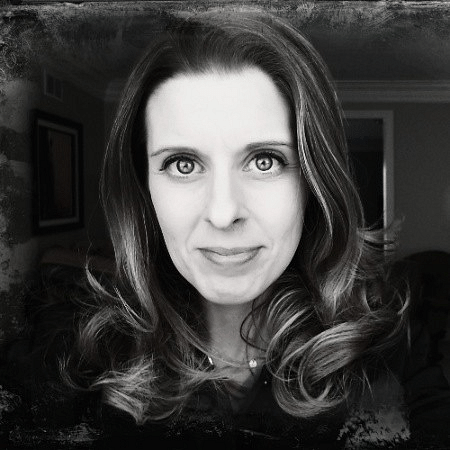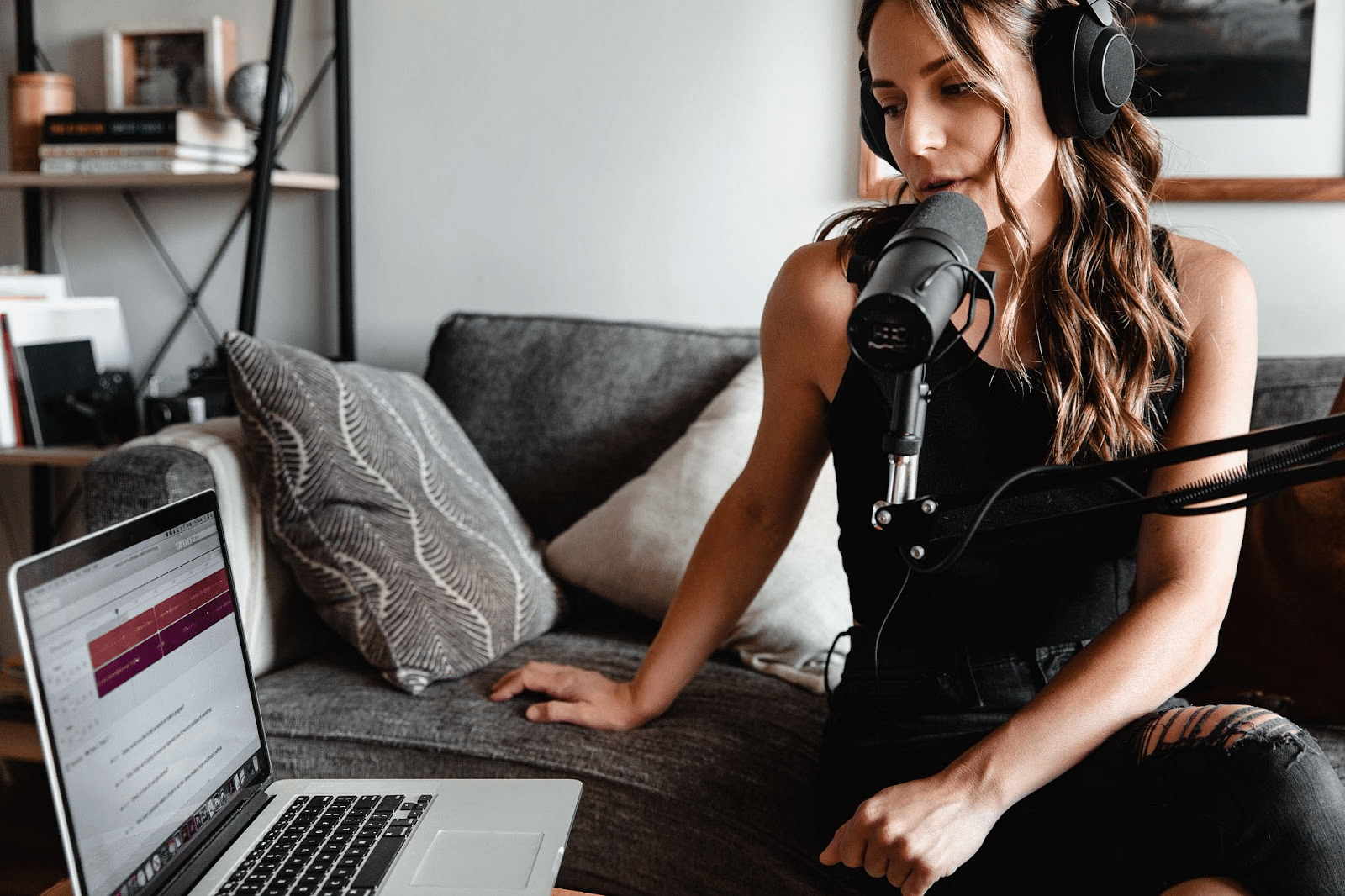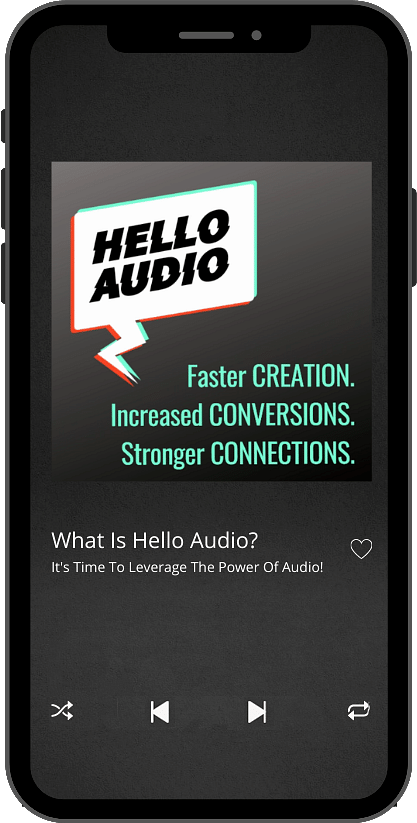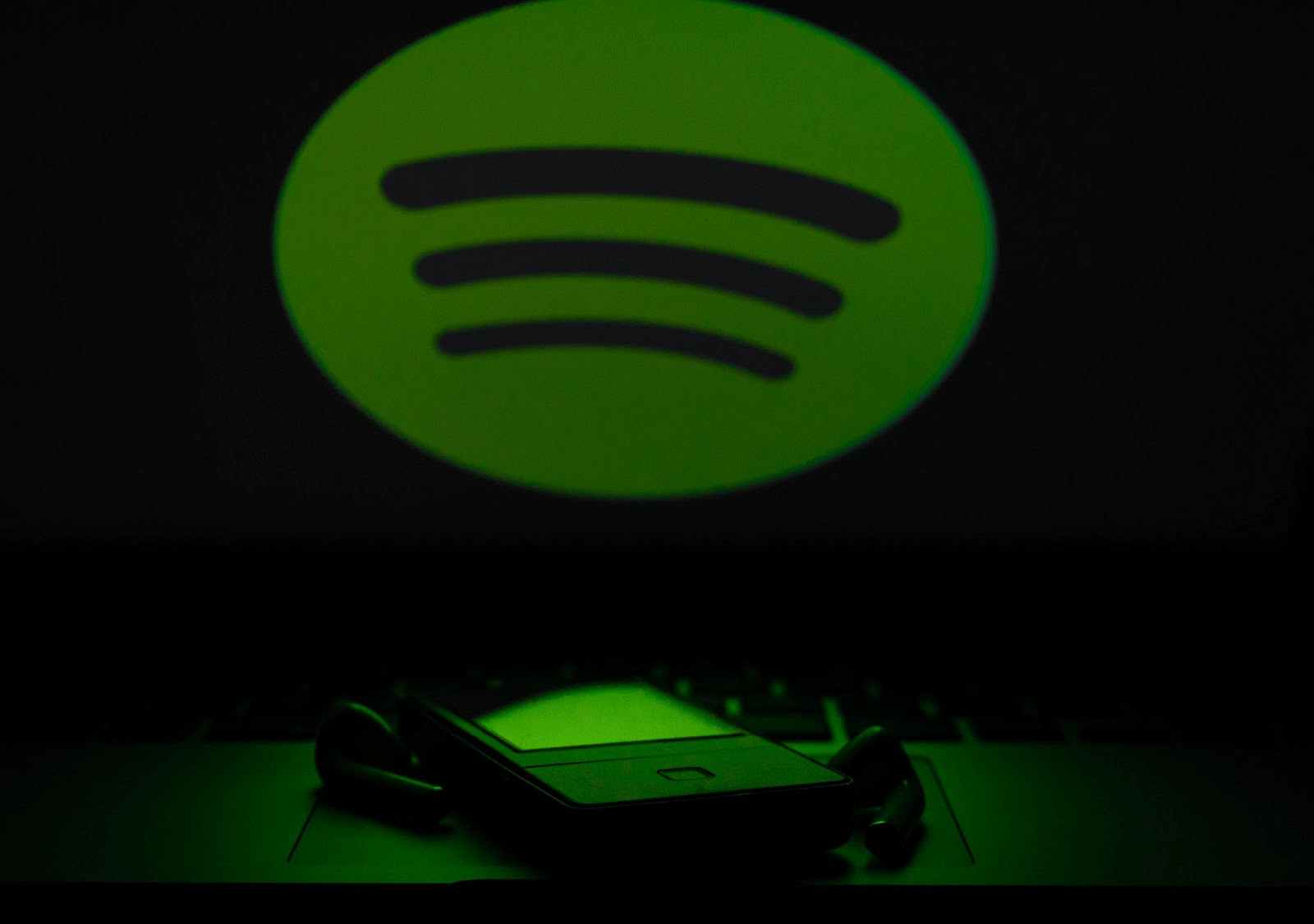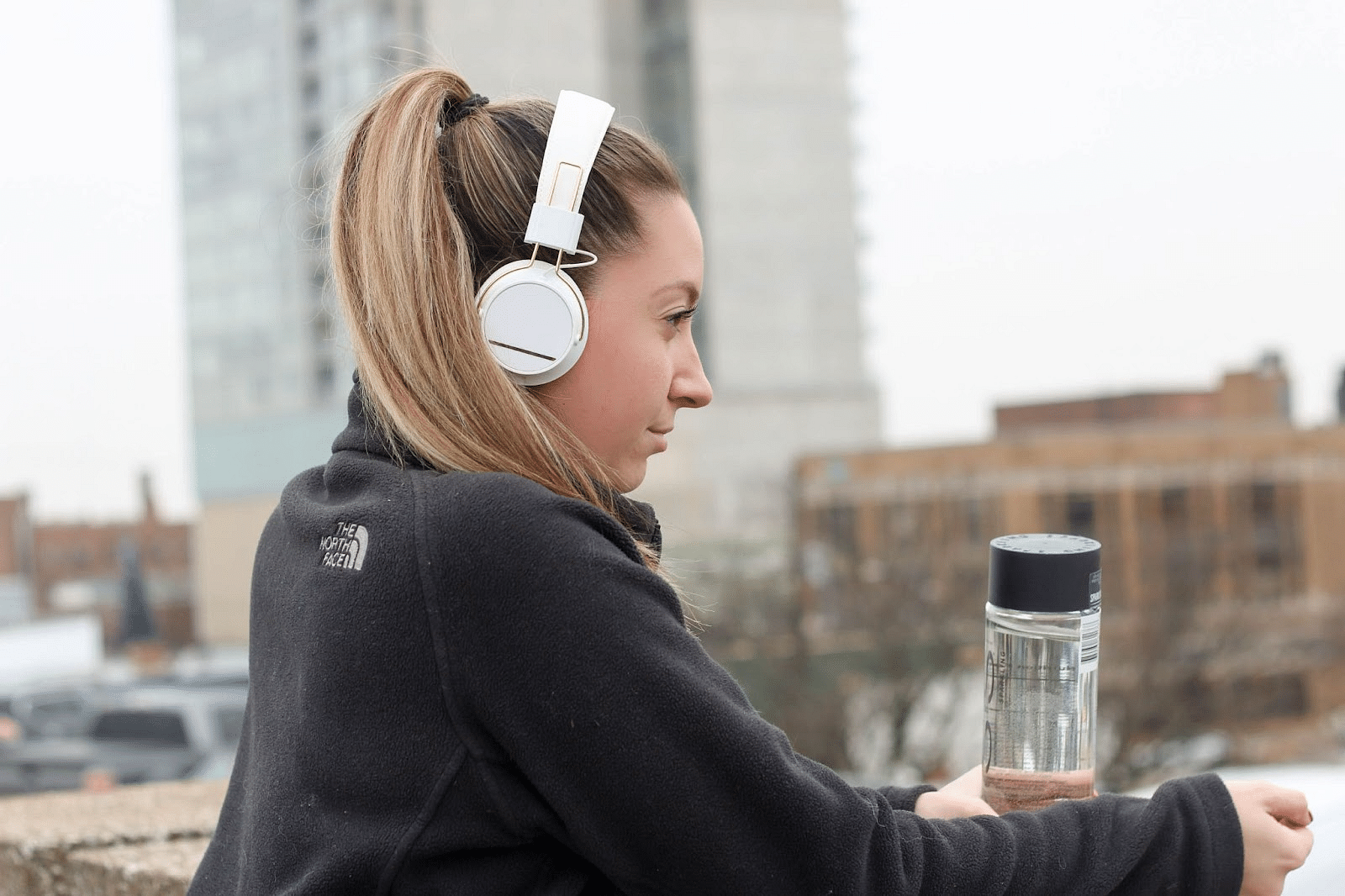
Hello Audio: How this platform can turn your content into private podcasts your audience can listen to on the go
By Jim James, Founder EASTWEST PR and Host of The UnNoticed Entrepreneur.
In the new episode of The UnNoticed Entrepreneur, Nora Sudduth joined me from Indianapolis and about private podcasts and how she helps entrepreneurs to get noticed.
Image from LinkedIn
Public vs Private Podcasts
Most people are familiar with public podcasts. They’re out there and anyone can subscribe. They’re open for anyone in the whole world to consume the information that they provide.
Private podcasts also operate, look, feel, and play in the same podcast apps that people use. But the biggest difference is that with a private podcast, you get to control who has access and for how long they get access to it.
It's fascinating because, with public podcasts, you're pushing data and content. Everyone gets the same content at the same time. With private podcasts, however, you can actually control how that content gets delivered and it can be listener-specific.
With private podcasts, your access links are tied to a specific listener email address, which allows you to put premium gated content into a private podcast. You can now podcast all sorts of things. You don't just have to have a show.
In public podcasts, people are used to interviews and shows. With private ones, you can podcast all sorts of content — from your course to your webinar to your email newsletters. And it can be so easy to be able to see who's listening and for how long. Though private podcasts aren't well-known, Nora considers them very useful for getting noticed.
How Private Podcasts can be Utilised
Asked about the use cases of private podcasts, Nora said that she buckets them into three different categories.
Image from Unsplash
-
Marketing
A lot of times, Nora and her team have clients who use private podcasts for their marketing content.
We operate in a noisy digital world. And whoever you are, whatever you sell, customers will always be busy. Hence, getting their attention and unlocking all of that attention can be challenging. For instance, you have a webinar and your show-up rate can be a little bit low or not all of your registrants can come to a specific time or a specific day.
What they do is help you create all this amazing marketing content. They will start by asking, “Is anyone consuming this information?” If so, they’d suggest using private podcasts as a way to make it easier for people to consume that information.
But whether it’s a webinar, a product launch, a video series, an email, a blog — all of that content you’re putting out there to attract your ideal customers — if it's not being read or watched, putting it into an audio form, especially a private podcast (which is convenient and easy to listen to on the go), will help you unlock all of those hours of the day when people are not sitting in front of their screens. This then allows you to expand your ability to reach your ideal audience.
With launch content and marketing content, the whole intention is to have people consume it because it moves them. It shifts them from being unaware to being more aware; it helps combat objections or common questions. And if they don't consume that information, they're not going to buy.
The cool thing about marketing use cases is that it shows how the consumption can be made easier, which, ultimately, increases conversion.
-
Fulfilment and delivery
The second use case that they see, which is also probably the second most common, is fulfilment and delivery.
For example, if you're a teacher and you have online courses or a coaching programme, Nora and her team will make it easier for your students and customers to consume that information. And what happens when they consume the information? They can get the results that they want. And you’ll see customer success just skyrocket. And when you have more customer success, you’ll succeed as well. Because success sells.
Customer success can be fed back into your marketing as well, which is kind of another win-win.
-
Internal use
The third bucket may not be as big but it is absolutely catching on, according to Nora. And it’s about all these internal or operational uses.
Think about employee onboarding. Think about having an internal podcast for your organisation instead of another all-hands Zoom meeting (which no one really wants to go to, anyway).
If you're an agency, you can onboard your clients with audio because none of them really wants to log into a member site and none of them really wants to read all your terms and conditions and your processes and all that stuff. Putting it into audio actually gets it consumed.
These are the different types of use cases but at the end of the day, what they’re doing all comes down to making it easier and more convenient for people to consume your content. And when they consume that content, they're a lot more likely to take that action that you want them to take.
What is Hello Audio?
There are a lot of podcast hosting companies that not only do public podcasts but also offer private podcasts.
Hello Audio, wherein Nora is the co-founder, specialises in private podcasts. They do offer public podcasts as well, but private podcasts are where they really shine because they’ve built it for creators. They built it for this purpose.
Image from Hello Audio
It operates very similarly to what you do for your public podcast. You can drag and drop your content and media files. Then they will strip out the audio for you automatically.
If you have video courses, you can just drag and drop and they’ll strip that audio for you so you don’t have to go into those shady sites to get your audio. That way, you’re able to just put it in there and add your listeners.
At Hello Audio, they also integrate with Zapier. And they have a few other direct integrations with amazing course platforms such as Thinkific or MemberVault. With that, you can actually have your students added automatically. It can be streamlined in terms of your processes as well.
The cost of hosting depends on the podcast platform. At Hello Audio, they operate more like a SaaS (Software as a service) pricing model.
Depending on the tier, you’d get a certain number of feeds. For their powerhouse plan, it offers unlimited feeds. Especially if you're a therapist or a life coach and you're doing one-on-one consulting and you want to have a private feed for each of your clients, this plan is helpful. If you're just a starter and you want to simply try it out, you're looking at as little as $17 to $100 a month.
As a company, where their costs really come from is the bandwidth. If you have a lot more bandwidth, then it might increase your price.
Earning via Private Podcasts
Private podcasts can be revenue-generating. But how can Hello Audio users take payment from their customers on their platform?
At the time of our interview’s recording, Nora shared that Hello Audio doesn't have a cart yet, but it’s something that they’re working on. Most of their users would typically use whatever payment processor they have in their business (e.g. Stripe, ClickFunnels, ThriveCart).
A lot of their users have different types of tech stacks, but no matter what they use, they're able to take payments. However, they don't necessarily have to take payment if they don't want to. Their private podcasts can just be an opt-in form that they're giving access to — much like a list-building freebie.
They’ve had a lot of users who were able to move away from that downloadable PDF kind of content, which usually ends up in a graveyard of PDFs. Users were able to turn their content into an audio form. And as they watch their consumption and opt-in rates go up, they also see their conversion rates go up — because everyone who is opting in knows that they're not going to read PDFs.
So no matter what tech stack you use, you can integrate on the backend and have automatic access delivered to that subscriber or that paying customer.
Where Private Podcasts can be Played
One of the partners that Hello Audio was able to get is Spotify. The users that host their private podcasts on Hello Audio can also have their podcasts played on Spotify. One of the new changes that Spotify did last year was that they started opening up to specific partners, and Hello Audio is one of them.
Image from Unsplash
But how Hello Audio really works is that they send an access link to your listener’s specific email address, which means it's unique to them. And you can set it so that the access link can expire as soon as they load it into their favourite podcast player of choice. And according to Nora, most podcast players accept private podcasts. Especially if these platforms are accepting RSS feeds, they're able to play those private podcasts
You can also set it so that the link dies when they put it into their podcast player. That way, it becomes unshareable. Now, your content is protected. And many people really care about that, especially for their premium gated content that their customers have paid or opted in for.
Private podcasts sound really powerful given that they can protect content and make it time-sensitive as well. It’s easy to produce as a content producer and it’s equally easy for the consumer to access it.
And for Nora, the great part about private podcasts is that you can do so much more. It's a great communication vehicle. First and foremost, there are millions of people across the globe listening to audio content in their favourite podcast app.
The hours that people are consuming to listen to content in their podcast apps rivals the number of hours that people are spending to watch Netflix content. This just shows how audio can be an amazing communication vehicle to reach your audience and get noticed.
Offering Evergreen Drip Content, Boosting Content Relevance
Private podcasts are also different in terms of how you can deliver your content.
As mentioned earlier, in public podcasts, everyone gets the same content at the same time. It's date-driven. You can do that with private podcasts as well. But the cool part about it is that you can actually have evergreen drip content.
For instance, if a user subscribes to your private podcast on a certain day, that will be their day one. That user gets dripped down on a specific schedule. If another user joins the next day, that user will be getting the same content and feed but now, the two users’ schedules are a bit different. And you as the content producer can set expiration dates based on time as well.
From a marketing standpoint, you’re able to build a sense of urgency: “Hey, we've got a pop-up podcast, we're doing a launch, we're doing this thing. This is a challenge. You only get access for seven days. Make sure you're consuming the content.”
You can't do that listener-specific access with the public podcasts, but you can with private, and that's what makes it so powerful.
Image from Unsplash
The other thing that makes private podcasts even more powerful is more about audio CRM (customer relationship management) — if you’re talking about it from a Marketing Technology or MarTech standpoint.
At Hello Audio, they have allowed users to tag their listeners. Similar to what you can do with an active campaign or all of your other email marketing systems and tools, you can tag listeners with specific values. Perhaps, it's a buyer versus a non-buyer or other ways that you segment your list. With that, you can now slip in full episodes or use pre-roll or post-roll that’s dependent on the tag. Your listeners can all be subscribed to the same feed, but you can have buyers that might get a certain episode like a bonus, and non-buyers that might get a promo.
It's not just about reach, unlocking all of those hours and reaching your customers where they're at. Now, with these types of technologies, you're increasing the relevance of that content as well. And that takes everything to a new level.
On Funnels and Customer Conversations
At this point in her career, Nora has already looked at thousands of marketing campaigns. She has helped sell over half a billion dollars of things online. And so she knows a thing or two about creating a successful marketing campaign.
According to her, it really goes back to customer conversation.
If you want to craft a winning marketing campaign or you have a marketing campaign that isn’t quite where you want it to be in terms of conversions, everyone typically points out funnels. The funnel delivers the conversation to your customer — it’s the delivery vehicle. That funnel can be an e-book, a private podcast, or a webinar.
But however your funnel looks like, Nora wants you to take a step back and look at the customer conversation. Map it out from beginning to end: How am I starting this conversation? What are my hooks? From which angles am I approaching this conversation starter? This mapping out goes all the way back to the customer journey: Who am I talking to? What is relevant to them?
Then, it’s about bringing them along and creating belief shifts. You may also have to rebuild some beliefs. You may have to demonstrate some things in order to get them to a state of mind that will prompt them to take the next action that you want them to take (whether it’s opt-in or purchase, however your funnel might look like).
Although the funnel that sells makes a difference, at the end of the day, if you take the funnel away, it comes down to mapping out that customer conversation first — then using the funnel as the delivery mechanism for that conversation.
Most people start with the funnel, and they're like, “Oh, it's the funnel. This is the step-by-step. I have to use this cookie-cutter approach.” And that funnels work — but they don't work as effectively as first mapping out that customer conversation that that funnel is going to deliver.
Image from Unsplash
On a side note, Nora shared that she was blessed and fortunate to be able to partner with Russell Brunson, one of the co-founders of ClickFunnels, to recreate his initial Certified Partner Programme. She also created one of their coaching programmes that did really well for them. For her, it’s amazing to work with organisations like that.
During her time with ClickFunnels, she was exposed to so many marketing campaigns working with Russell and his team. And obviously, when you work with a sales and marketing genius like Russell, you'll learn a lot.
On Getting Noticed
Historically, Nora said that she hasn’t done a great job of putting herself out there and getting noticed. She’s introverted and she’s more comfortable being the wizard behind the curtain.
She’s gone through and helped so many people sell things online. She’s generated millions of dollars and she’s helped people create programmes and courses. Through all that, she realised how important it is and what a missed opportunity it's been, especially with Hello Audio, to get noticed and to get your name out there.
At Hello Audio, they’ve been doing a lot more with private podcasts and with audio because they want to walk their talk. And with audio, it actually does help them reach more of their ideal audience because they're all busy business owners — they don't necessarily have a lot of time to sit in front of their computers and watch hours of video. So putting information in a private podcast has helped them gain more exposure and get more noticed.
Private podcasts have been a really big opportunity. But public podcasts like The UnNoticed Entrepreneur have been an opportunity for them as well.
And for her, personally, what she’d like to do is to create and write and just block off time. Being intentional about blocking off time to create, to document ideas and not just have ideas, to get those ideas out of your head and really put them into audio (for Nora, it's easier for her to speak and record content that way) has really helped her with rapid content creation.
To find more about Hello Audio, visit www.helloaudio.fm.You can sign up for a free trial and there's absolutely no credit card required. If you want to connect with Nora, her website is www.norasudduth.com.
This article is based on a transcript from my podcast The UnNoticed Entrepreneur, you can listen here.
Cover image by Eran Menashri on Unsplash

